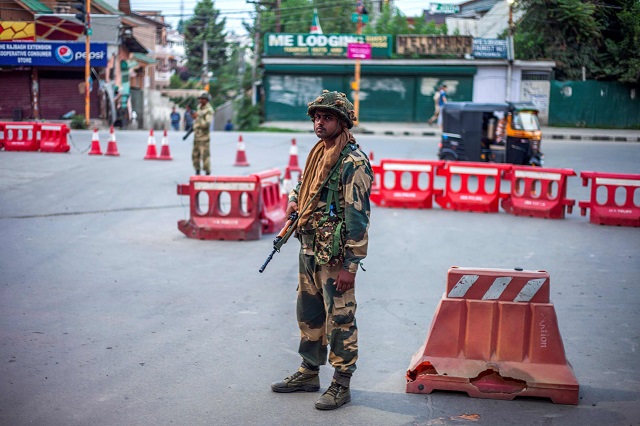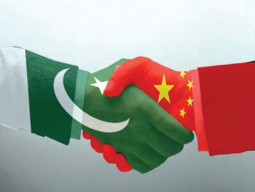
Kashmir was stripped of its seven-decade-long autonomous status through a controversial presidential decree on Monday, a day after a crippling curfew was imposed on its main city.
Home to more than one million people, Srinagar now looks like a ghost-town: armed soldiers on street corners and in front of barbed wire barricades make up most of the few people to be seen.
Information from the Himalayan region - one of the most militarised in the world - is scarce. All phone connections and the internet were cut when the curfew was imposed.
Indian soldiers man checkpoints about every 100 metres on main roads in the city. Only people in essential jobs are allowed to leave their homes.
Virtually every shop is closed and residents said no fresh produce is arriving.
Refugees in Pakistan fearful after India abolishes Kashmir autonomy
Most people stocked up with supplies of food in the days ahead of the curfew as rumours mounted that the New Delhi government was about to make its constitutional move, stripping Kashmir of its special privileges.
With the curfew biting, only soldiers and police of the occupation force loiter in front of apparently abandoned buses and colourful trucks that block streets of shuttered stores.
Pigeons and stray dogs in the city's scenic squares are untroubled by tourists, who journey to the region to enjoy the picturesque lake and local handicrafts and touts attempting to hawk the latest wares.
Despite the lockdown in Srinagar, reports emerged on Tuesday of sporadic protests.
At least six people were admitted to a hospital in the city with gunshot wounds and other injuries, a source at the facility told AFP on condition of anonymity.
Indian authorities have insisted the region is peaceful, however.
Indian-occupied Kashmir has been in the grip of a freedom struggle against Indian rule since 1989.
New Delhi rushed tens of thousands of fresh troops to the conflict-ridden valley earlier this month in anticipation of unrest over the decision.
1732503274-0/Untitled-design-(43)1732503274-0-405x300.webp)
1732501636-0/Untitled-design-(42)1732501636-0-165x106.webp)

1732498967-0/Outer-Banks--(1)1732498967-0-165x106.webp)
1732086766-0/BeFunky-collage-(74)1732086766-0-165x106.webp)












COMMENTS
Comments are moderated and generally will be posted if they are on-topic and not abusive.
For more information, please see our Comments FAQ